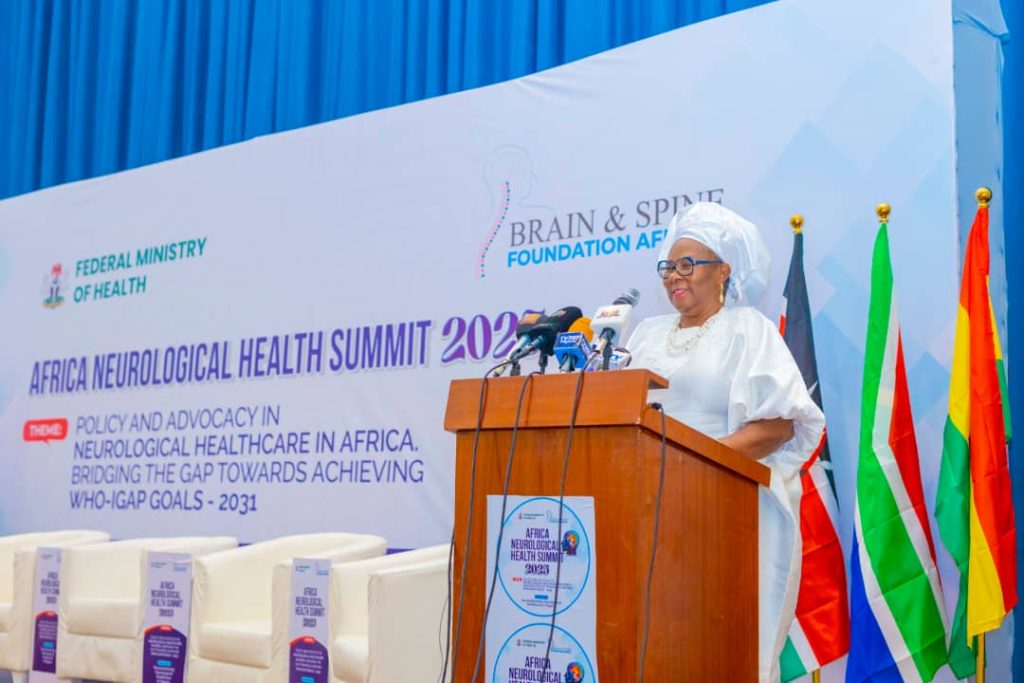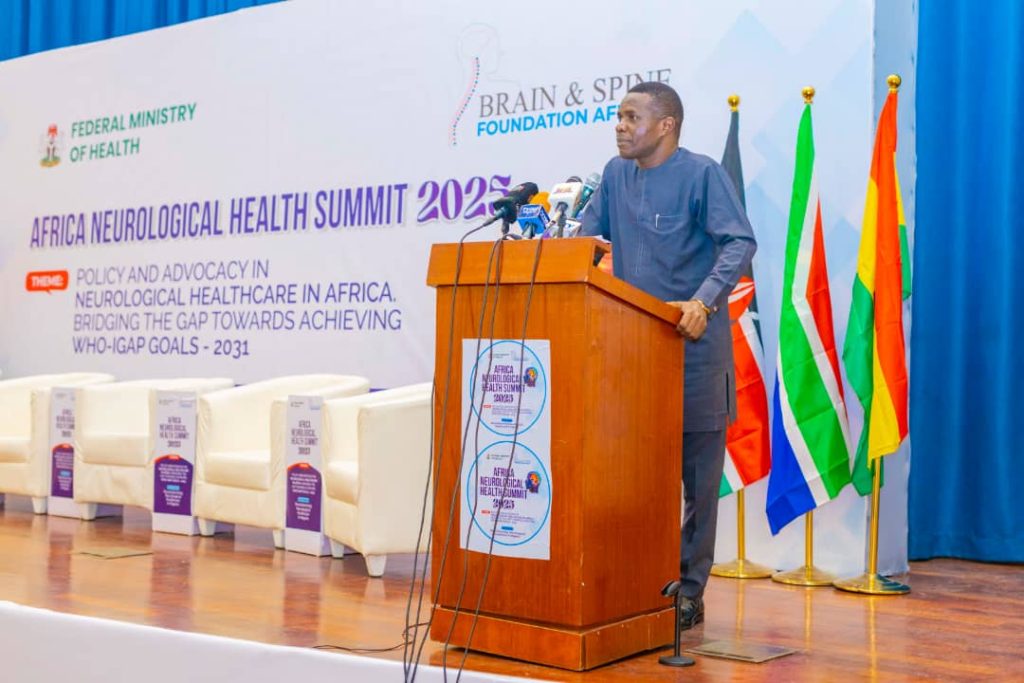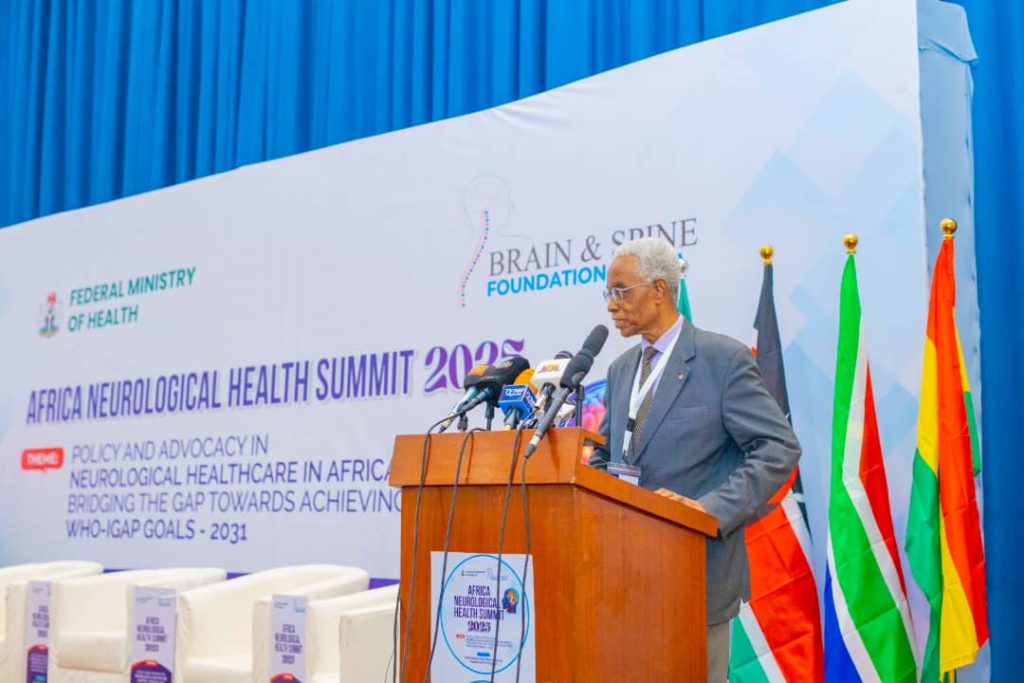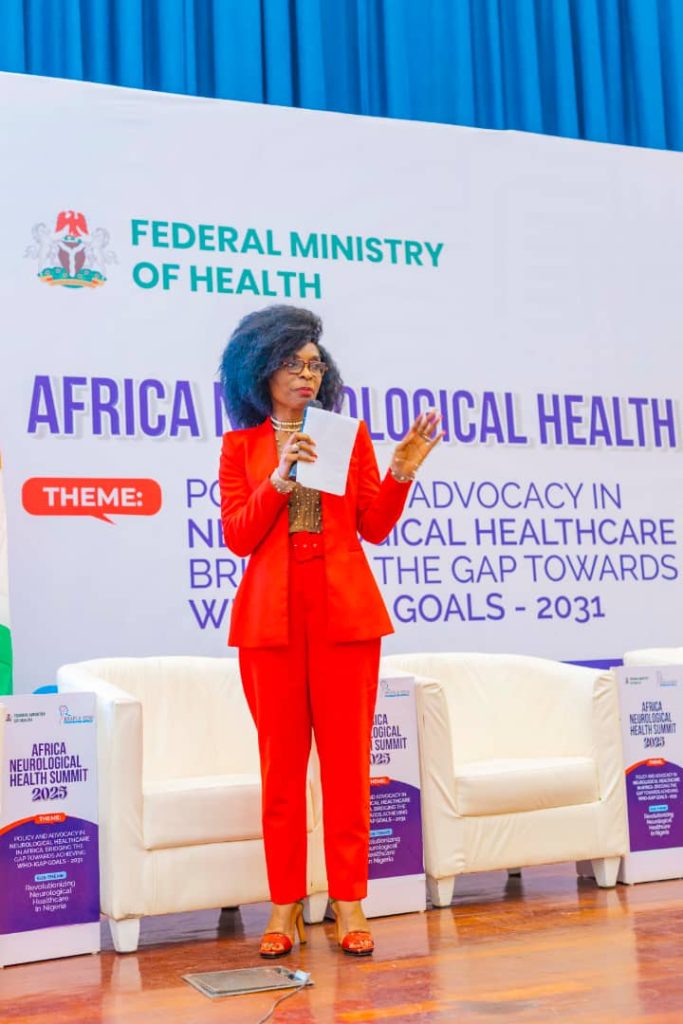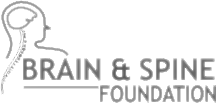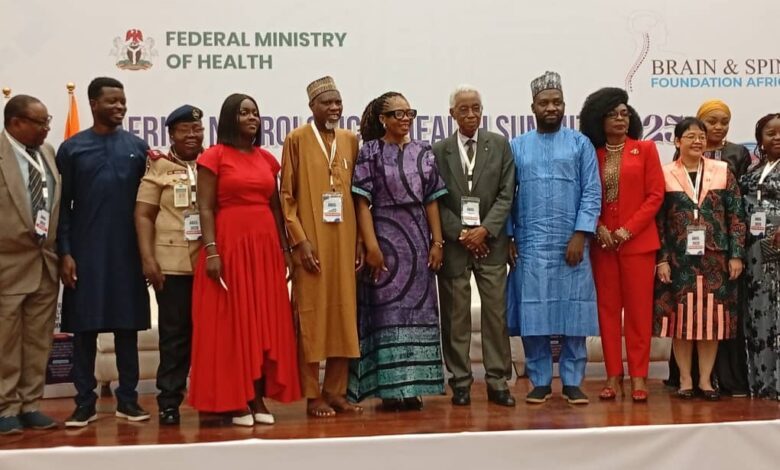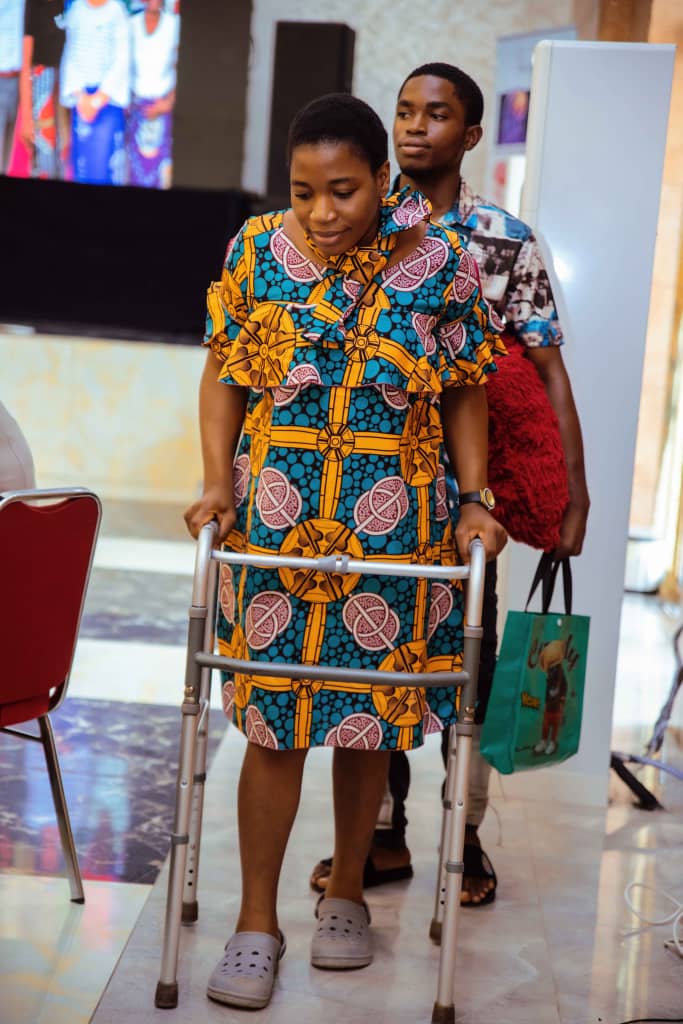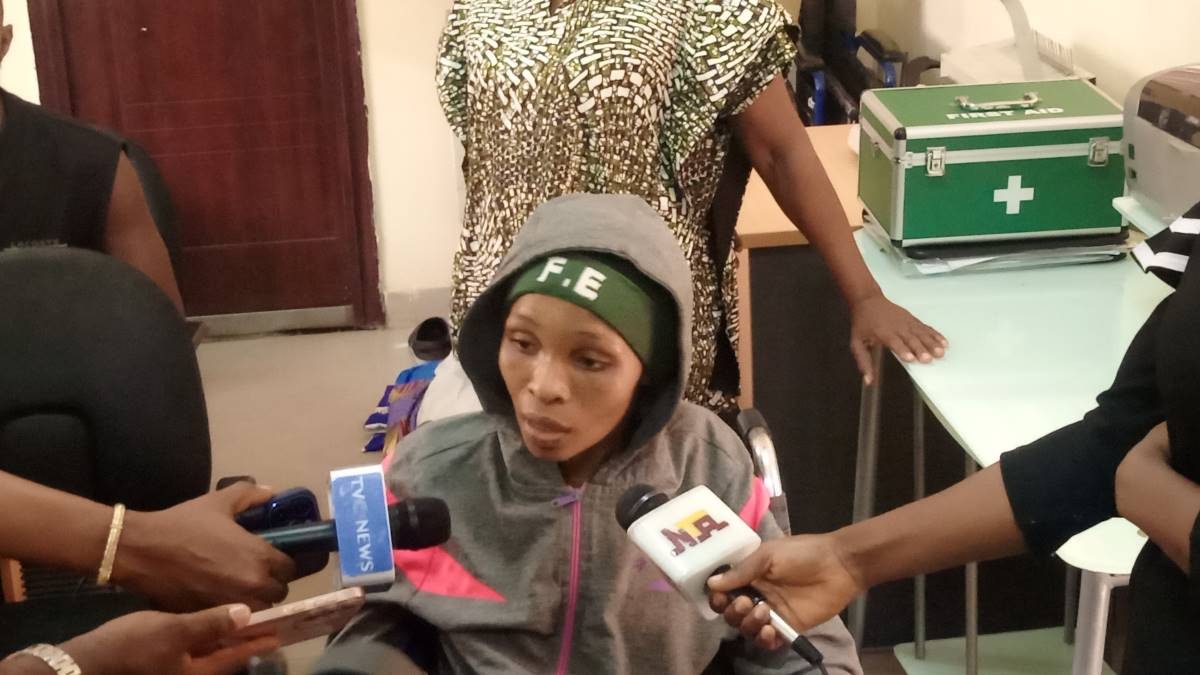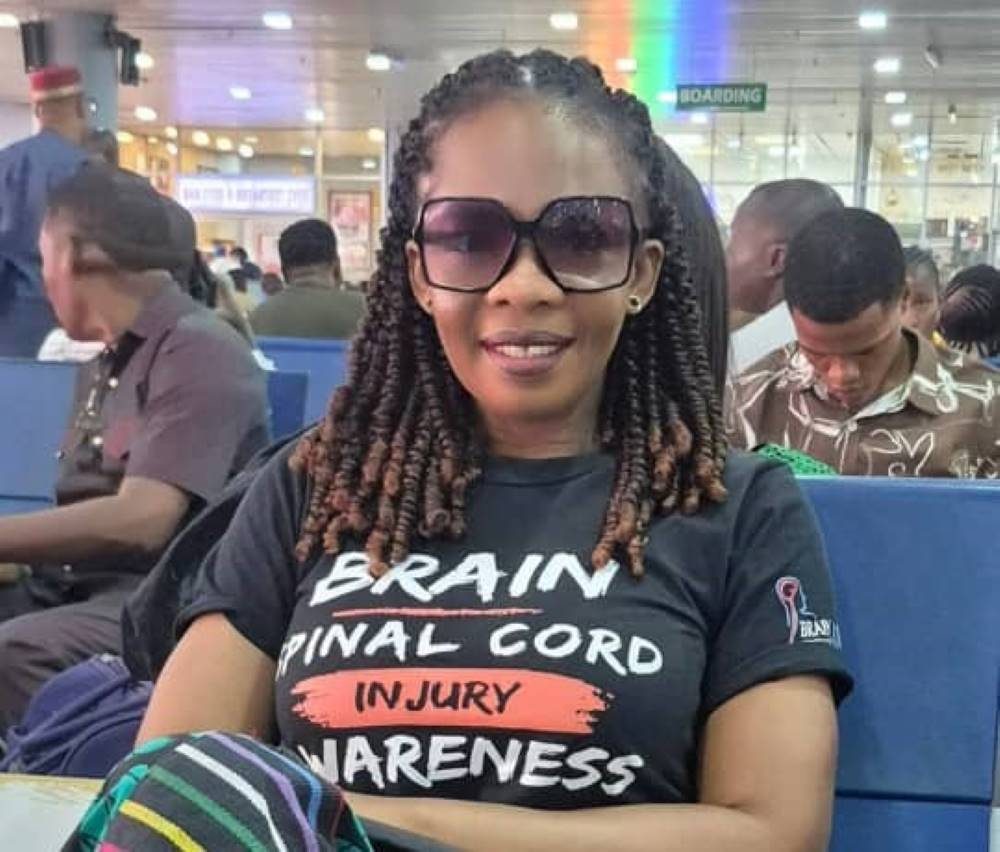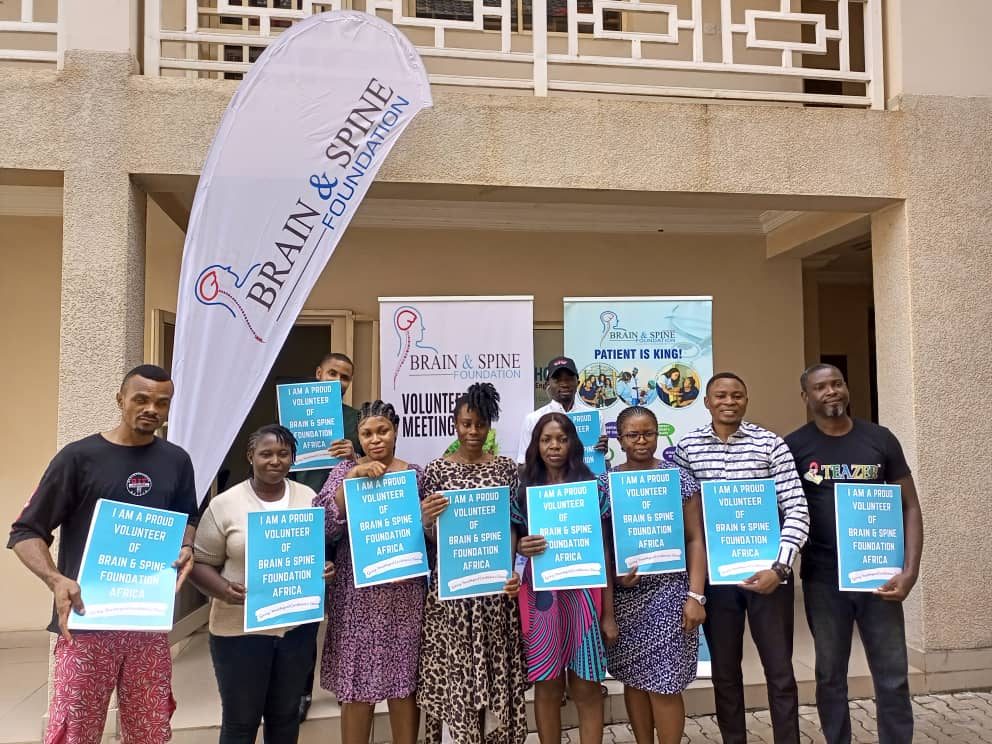Nigeria Moves To Strengthen Neurological, Mental Healthcare
The Nigerian government has intensified its push to reform neurological and mental healthcare, designating brain health as a priority both nationally and across the continent.
As part of this initiative, the country is embedding neurological services into major health programmes, broadening access to treatment, and enhancing domestic pharmaceutical production to confront the growing burden of brain-related illnesses.
This renewed commitment was detailed by the Coordinating Minister of Health and Social Welfare, Professor Muhammad Ali Pate, at the First Africa Neurological Health Summit, held in Abuja, the nation’s capital.
Speaking at the event—co-hosted by the Brain and Spine Foundation Africa and the Ministry—Professor Pate said the summit represented a shift from dialogue to decisive measures.
Represented by the National Coordinator for Mental Health, Dr. Tunde Ojo, Prof. Pate noted that neurological disorders such as stroke, epilepsy, Parkinson’s disease, dementia, and traumatic injuries now rank among the leading causes of disability and death globally.
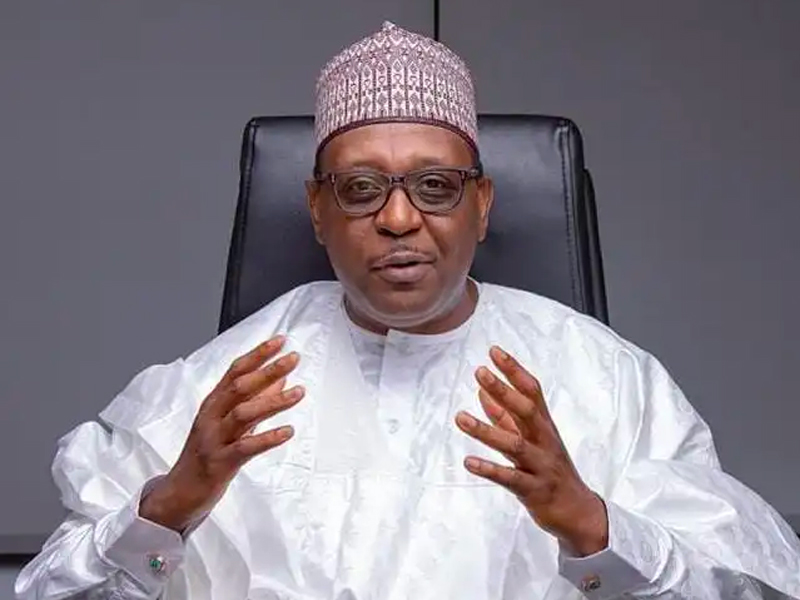
“The burden is particularly severe in low- and middle-income countries, where treatment gaps for conditions like epilepsy exceed 75%,” he said.
Professor Pate pointed to recent steps taken by the government, including integrating mental and neurological services into the Basic Healthcare Provision Fund (BHCPF), passing the National Mental Health Act, and launching a national policy on non-communicable diseases.
He further announced tax exemptions on essential neuropharmaceutical products to boost local manufacturing and affordability.
The Minister stressed that progress requires joint effort, urging states, academia, civil society, and the private sector to invest, coordinate, and act so that no Nigerian or African is left without access to life-saving neurological care.
Founder and Executive Director of Brain and Spine Foundation Africa, Engr. Chika Okwuolisa shared a personal story of her sister’s stroke in 2012, which revealed deep gaps in Nigeria’s neurological care system.
“That experience birthed Brain and Spine Foundation Africa,” she said, underscoring the urgency for reforms, heightened public awareness, and cross-sector collaboration to prevent avoidable deaths and disabilities from brain and spinal conditions.
Engr. Okwuolisa lamented the silence, stigma, and financial pressures that often lead to needless suffering and fatalities, especially in underserved areas.
“Neurological health is not a luxury, it is foundational,” she declared, adding that the summit represents a vital step in making brain health central to health policy and public investment across Africa.
Representing the WHO Country Representative in Nigeria, the organization’s Team Lead for Communicable and Non-communicable Diseases, Dr. Mya Ngon, reiterated WHO’s commitment to working with the Federal Ministry of Health and other stakeholders to expand interventions nationwide.
Dr. Ngon acknowledged that while Africa has made some headway in addressing neurological disorders, the prevalence of conditions such as stroke, epilepsy, and dementia is still increasing.
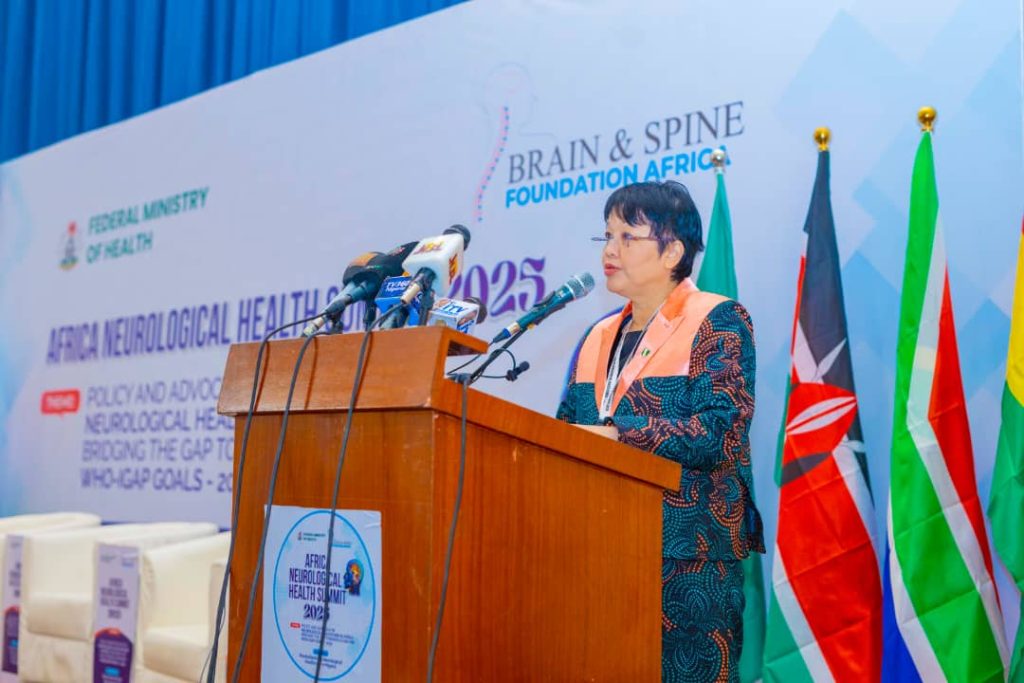
“Let us take this summit as an opportunity to move from discussion to action,” she urged.
“As part of WHO broader commitment, we are looking forward to implementing jointly developed recommendations that emerge from the summit,” she added.
Dr. Ngon also emphasized the importance of people-centered and sustainable interventions, stating,
“We are fully committed to seeing this agenda succeed.”
In his special remarks, Prof. Samuel Ohaebulam, Patron of Brain and Spine Foundation Africa and President of the Nigeria Academy of Medicine, raised concerns over the acute shortage of skilled personnel and facilities for neurological care in Nigeria.
He pointed out that intensive care units, trained nurses, and specialists in the field remain in critically short supply.
Prof. Ohaebulam highlighted the urgent need to bolster medical training and retain professionals, lamenting the persistent brain drain.
“After we invest in training, our specialists leave to find jobs abroad. It’s very sad,” he said, calling for tangible solutions to curb the exodus and build a stronger local health workforce.
He also urged African leaders to recognize the continent’s immense resources and reduce reliance on foreign aid.
“Africa is the most blessed continent, yet we keep begging for help,” he remarked, encouraging stakeholders to take ownership of the continent’s neurological health agenda.
Participants—including policymakers, healthcare practitioners, and international partners—were called upon to close the gap in neurological care through inclusive policies, adequate funding, and comprehensive healthcare reforms.
